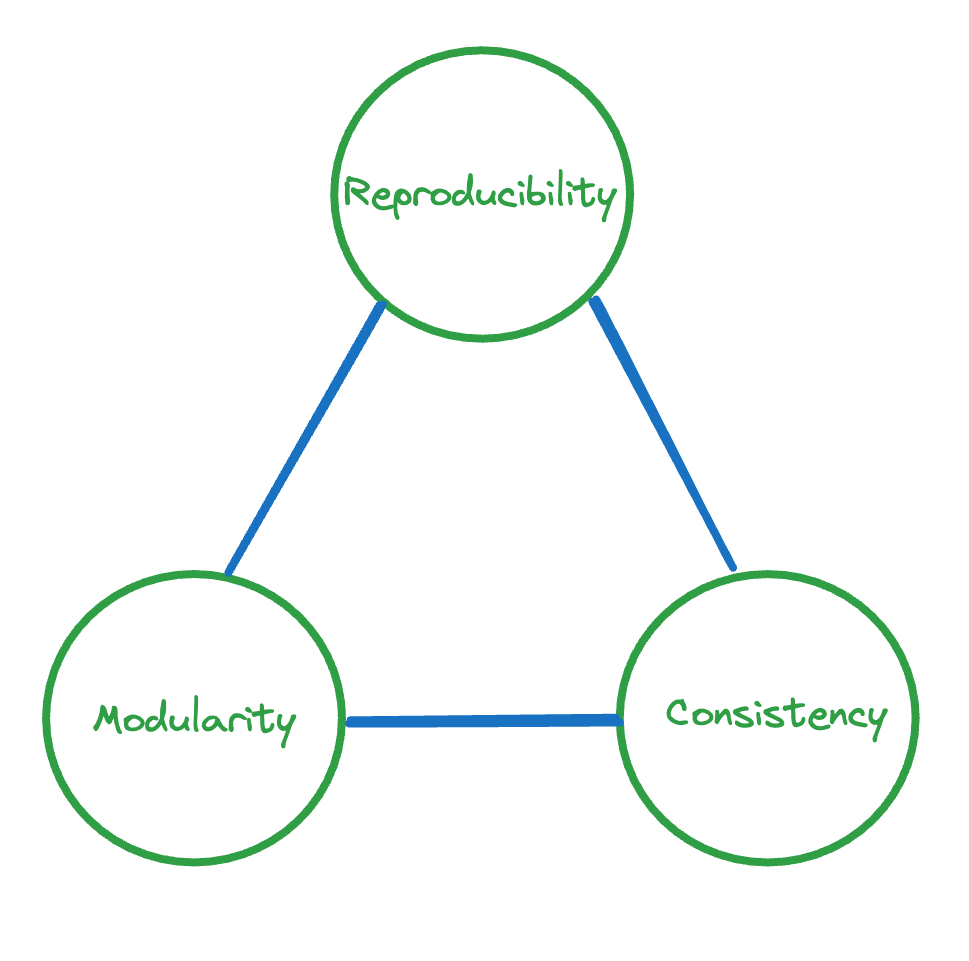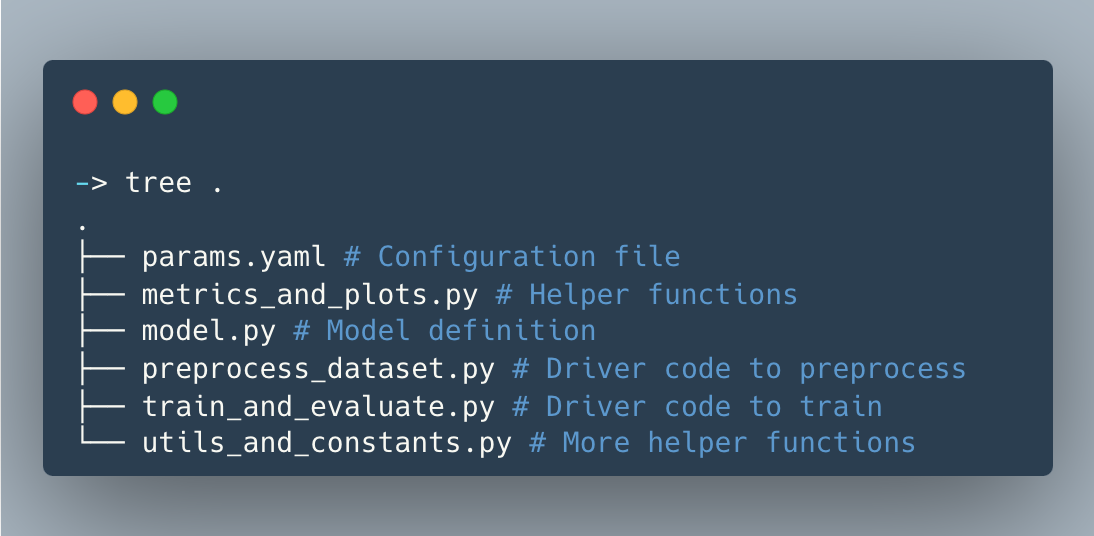Code organization and refactoring
Introduction to Data Versioning with DVC

Ravi Bhadauria
Machine Learning Engineer
Prototyping vs production code
- Prototyping code allows rapid iteration
- But not suitable for production
- Untested and prone to errors
- Not modular with many repeated code blocks
- Likely not reproducible
Features of good production code
Reproducible: recreate same outputs in different environments and time
Modular: written as distinct, independent, and testable modules
Consistent: Single source of truth for all parameters
- A configuration/parameter file

Configuration files and YAML
Files should be in supported format
- YAML, JSON, TOML, Python
- Default is
params.yaml
We'll work with YAML
- YAML Ain't Markup Language
- Allows a standard format to transfer data between languages or applications
- Simple and clean format
- Valid file extensions:
.yamlor.yml
1 https://dvc.org/doc/command-reference/params#description
YAML Syntax
Specify parameters as dictionaries
- Keys and values separated by
:
- Keys and values separated by
Comments start with
#Data types:
- Integer, Floats, Strings
Data structures:
- Arrays
- Nested Dictionaries
Indentation is important
# Key-value pairs
a: 1
b: 1.2
c: "String value"
# Arrays
a: [1, 2.2, 3, 4.8]
b:
- 5
- "String value"
# Nested dictionaries
a:
b: "Some value"
c: "Some other value"
Example configuration file
# Data preprocessing paramters preprocess: ... target_column: RainTomorrow categorical_features: - Location - WindGustDir - ...# Model training/evaluation paramters train_and_evaluate: rfc_params: n_estimators: 2 ...
Example modular function
# In model.py
def evaluate_model(model, X_test, y_test):
"""Evaluate a model on a test set and return metrics."""
y_pred = model.predict(X_test)
precision = precision_score(y_test, y_pred)
...
return { "accuracy": accuracy, "precision": precision,
"recall": recall, "f1_score": f1 }
# In entry-point code (train_and_evaluate.py)
from model import evaluate_model
metrics = evaluate_model(model, X_test, y_test)
Sample project code layout

Let's practice!
Introduction to Data Versioning with DVC

